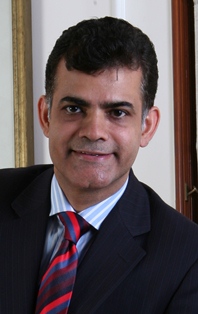 For me, Day 4 at the World Economic Forum was a whirl-wind of business meetings, interspersed with media interactions and some very amazing sessions. I particularly enjoyed ‘A Journey of Discovery’ with Robert Shiller – Nobel Laureate and Yale University professor. The session’s touch-points ranged from path-breaking empirical analysis of asset prices to profound insights on risk, bubbles and other aspects of finance in society. Also, it appears that Bitcoin has not found much fancy.
For me, Day 4 at the World Economic Forum was a whirl-wind of business meetings, interspersed with media interactions and some very amazing sessions. I particularly enjoyed ‘A Journey of Discovery’ with Robert Shiller – Nobel Laureate and Yale University professor. The session’s touch-points ranged from path-breaking empirical analysis of asset prices to profound insights on risk, bubbles and other aspects of finance in society. Also, it appears that Bitcoin has not found much fancy.
I had reason to pay close attention to Shiller, who had predicted that the markets would slump in 2007. In fact, his book was published in March 2007 and the markets crashed in September 2007. He referred to the whole BRICS debacle as ‘dissatisfied optimism’, but conceded that BRICS are still strong economies. In the case of India, foreign investors want to see action and not merely intent, which has been the case so far.
The session on Israel had some hilarious moments. Private enterprises were compared to soldiers running an unequal race because of the inequitable burden – namely the government – that they have to carry along. What came forth most clearly is that in a well-managed economy, private companies receive wholesome nourishment, governments subsist on lean diets and barriers to growth are removed – thereby leading to a surge in GDP.
I did not meditate too long on where India stands in context with such a progressive approach. It makes me uncomfortable.
I came away from David Cameron’s session with the opinion that in the future, more high-value jobs will great created in UK; jobs coming from the East, and not at their cost, but as a result of more creation in manufacturing and services. This should lead to higher revenue flows and an increased value addition to the economy.
Finally, I attended the China session, which had a sizable turnout and was replete with interesting insights. In 2014, China’s GDP growth should hover around the 7.5% mark (a couple of years ago, it stood at 10 %.) There is surely a shared story between China and India somewhere. In fact, China has its own anti-corruption movement, and it is gaining momentum. Interestingly, it was opined that this movement may result in a period of slow growth for the next year or so. Because of the anti-corruption mindset, spends on luxury products and services in China have decreased considerably.
My main takeaway from this session was the ‘Sandwich Theory’. The top layer of the sandwich – the government and the Premier along with the Chinese masses as the bottom layer – are done with the bureaucratic middle-layer (the leaders of government-owned enterprises) and are trying to edge them out to get in more efficient management. I found the fact that the Chinese government is trying to get professional leaders to head state-owned enterprises extremely interesting. It stands to reason that professional CEOs will be more efficient than mere nominated functionaries.
I perked up when real estate was mentioned. Residential real estate in China has apparently improved considerably, but prices – which need to come down – will not grow in tandem with the GDP increase. In fact, they are expected to remain stable for the next 3-5 years. I could not help but draw certain parallels to India.
In short, Day 4 at Davos was a little overwhelming in terms of the insights I had to absorb over the course of a single day. However, I feel enriched and am extremely glad that I could attend these sessions. I will have time to process it all in a better way on my return.
